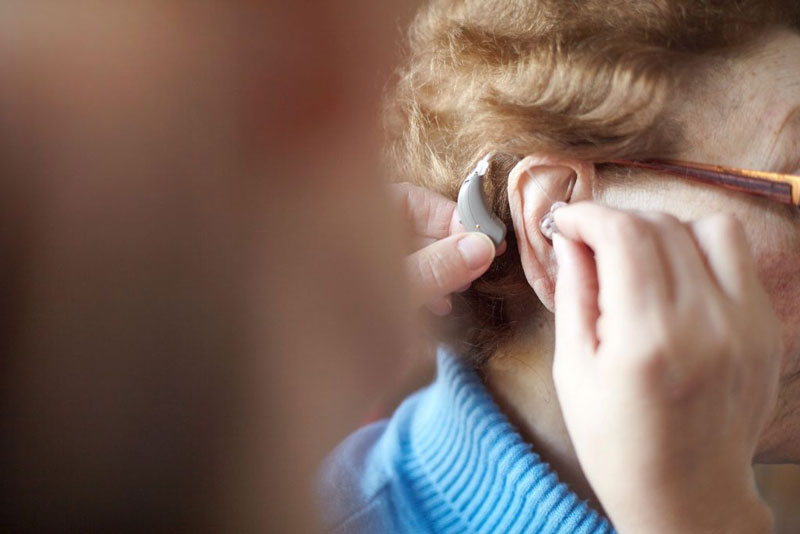What Are OTC Hearing Aids?
In 2022, the FDA authorized the production and sale of over-the-counter hearing aids, which are hearing devices that – for the first time – don’t require a prescription from a qualified physician or audiologist. While these devices do present a lower price point for consumers, there are important issues to consider before purchasing an OTC hearing aid.
Our team is committed to helping patients of all ages and levels of hearing loss find the right solution for their lifestyles. But before pursuing OTC hearing aids, consider the pros and cons of this newest option:
PRO: OTC Hearing Aids expand access for hearing care.
Numerous studies have shown that people with untreated hearing loss are more susceptible to social isolation, cognitive issues, and even dizziness or falling. However, most people with hearing loss wait years before deciding to address it; one study even indicates that 86% of Americans 50 and older living with hearing loss do not wear hearing aids. Expanding access to options for patients is certainly a plus – especially with OTC being more convenient and overall lower-priced than their prescription counterparts.
CON: OTC hearing aids aren’t for moderate or severe hearing loss, and come with risks.
Think of OTC hearing aids as similar to the reading glasses you can purchase at your local superstore or pharmacy off the shelf – they’re low-cost options for a specific kind of mild vision loss, but don’t help with more severe – or complex – issues. Without professional support, studies show that consumers usually choose the wrong device for their hearing needs, and that can pose severe risks to their hearing.
If your OTC device is on the wrong settings that under- or over-amplify sound, that can be damaging to your hearing and could affect your ability to preserve the hearing you do have.
PRO: OTC hearing aids can provide a cost-effective method for simple sound amplification for those who need it.
The primary motivation for the FDA’s approval of OTC hearing aids is expanding access to hearing care – particularly for those with little-to-no insurance coverage. Hearing aids and other hearing assistance devices are a financial investment in your long-term health and well-being, but these devices can be a good solution for short-term, mild-level support.
CON: OTC hearing aids miss out on important components of effective hearing care.
Hearing loss can be caused by a wide array of complex health issues. When you visit a professional audiology team for a comprehensive evaluation, there are a number of steps to ensure your care is thorough and customized to your needs:
1. Hearing test: Using calibrated equipment in a sound booth, our audiologists conduct a thorough exam that determines the type and severity of your hearing loss. This includes evaluating how you perceive sounds in noisy environments and other factors.
2.Medical evaluation: Some hearing loss is caused by something easily fixable – like earwax buildup – or something more severe – like middle ear conditions. Using a collaborative approach with our board-certified ENT physicians and audiologists, we can ensure that the right treatment intervention is chosen for you.
3. Symptom counseling: Hearing loss can also cause a number of other symptoms, like tinnitus or dizziness. Our audiologists are trained to address the whole body of hearing-related symptoms, not just the hearing loss.
4. Review of all hearing device options: Hearing aids may be the perfect solution for you, but there are also other devices like cochlear implants, bone-anchored hearing aids, and other solutions that could be a better fit. Our team will review the whole spectrum of solutions, including OTC, with you.
5. Ongoing care and adjustments: Once a hearing aid solution is chosen, our audiology team will program, test, and adjust your devices to your specific needs. They are also available for the lifespan of your device’s warranty for ongoing maintenance (cleaning, repairs) and adjustments when needed.
Want to learn more about your options for hearing loss? Contact our Audiology team at Texoma Hearing Institute today to schedule an appointment.





